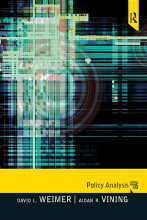Limits to public intervention: government failures - Problems inherent in direct democracy - The paradox of voting
3 important questions on Limits to public intervention: government failures - Problems inherent in direct democracy - The paradox of voting
The final choice of a vote would depend not only on the agenda, but also on the extend to which people engage in sophisticated voting (this opportunistic voting requires one to realize that a more favorable final outcome can sometimes be achieved by voting against one's true preferences in the preliminary rounds). AT the heart of this indeterminacy lies what is often referred to as:
Kenneth Arrow proved that any voting rule that satisfies a basic set of fairness conditions could produce illogical results (general possibility theorem). Cyclical (intransitive), or incoherent, social preferences like those appearing in the paradox of voting can arise from any fair voting system. Also, any voting system that us designed to prevent intransitive orderings must violate at least one of the axioms. Arrows 4 axioms are:
- Axiom of unrestricted domain (any transitive preferences over the possible policy alternatives)
- Axiom of transitivity
- Axiom of Pareto choice (if one alternative us unanimously preferred to a second, then the rule for choice will not select the second)
- Axiom of independence (no one is allowed to impose his or her preferences regardless of the preferences of the others)
Two implications of Arrow's theorem for the interpretation of democracy are:
- Once a cycle arises anywhere in the social ordering, a person with control of the agenda can select a series of pairwise votes to secure any of the alternatives as a final choice.
- The introduction of alternative policies that create cycles is often an attractive strategy for voters who would otherwise face an undesirable social choice. Persistent losers have an incentive to constantly introduce new issues in an attempt to create voting cycles that offer opportunities to defeat dominant coalitions during the resulting periods of disequilibrium.
The question on the page originate from the summary of the following study material:
- A unique study and practice tool
- Never study anything twice again
- Get the grades you hope for
- 100% sure, 100% understanding
































